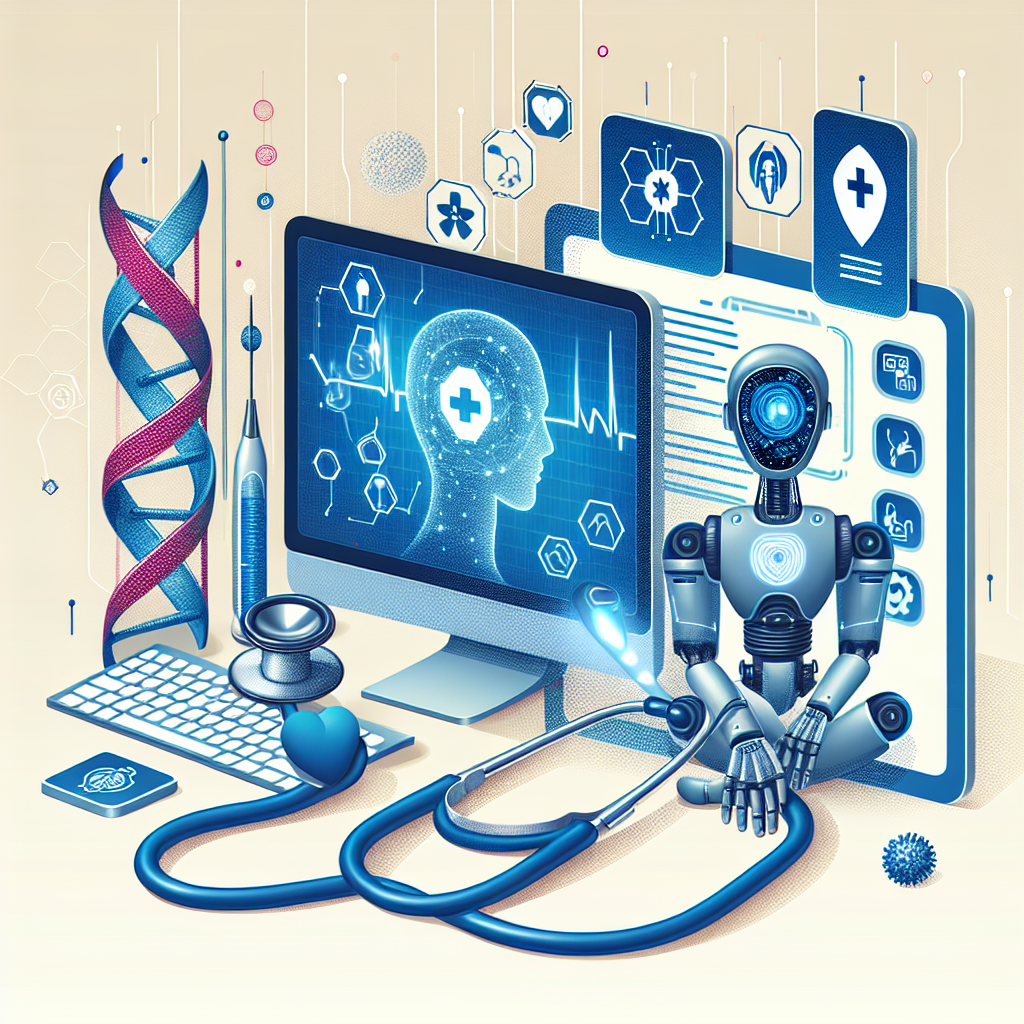In recent years, the healthcare industry has seen a significant rise in the use of artificial intelligence (AI) tools to improve patient care and outcomes. AI has the potential to revolutionize personalized healthcare by analyzing vast amounts of data to provide more accurate diagnoses, personalized treatment plans, and improved patient experiences. In this article, we will explore the benefits of implementing AI tools for personalized healthcare and discuss some frequently asked questions about this emerging technology.
Benefits of AI in Personalized Healthcare:
1. Improved Diagnostics: AI-powered tools can analyze medical images, lab results, and patient history to provide more accurate and timely diagnoses. This can lead to earlier detection of diseases and more effective treatment plans.
2. Personalized Treatment Plans: AI can analyze patient data to create personalized treatment plans based on individual characteristics, such as genetic makeup, lifestyle factors, and medical history. This can lead to more effective treatments and better outcomes for patients.
3. Predictive Analytics: AI tools can analyze patient data to predict future health outcomes and identify high-risk patients. This allows healthcare providers to intervene early and prevent potential health issues before they escalate.
4. Remote Monitoring: AI-powered devices can monitor patients remotely and provide real-time feedback on vital signs, medication adherence, and overall health status. This can help patients manage chronic conditions and reduce the need for in-person visits to healthcare facilities.
5. Enhanced Patient Experience: AI tools can improve the patient experience by providing personalized recommendations, answering questions, and offering support throughout the healthcare journey. This can lead to better patient engagement and satisfaction with the healthcare system.
FAQs about Implementing AI Tools for Personalized Healthcare:
1. What are some common AI tools used in personalized healthcare?
Some common AI tools used in personalized healthcare include machine learning algorithms, natural language processing (NLP), image recognition software, and predictive analytics models. These tools can analyze large datasets to identify patterns and trends that can help healthcare providers make more informed decisions about patient care.
2. How can AI improve patient outcomes in personalized healthcare?
AI can improve patient outcomes in personalized healthcare by providing more accurate diagnoses, personalized treatment plans, and predictive analytics to identify high-risk patients. By analyzing vast amounts of data, AI tools can help healthcare providers make more informed decisions that lead to better outcomes for patients.
3. Is AI safe and secure for use in personalized healthcare?
AI tools used in personalized healthcare must adhere to strict privacy and security guidelines to protect patient data. Healthcare providers must ensure that AI systems are compliant with regulations such as the Health Insurance Portability and Accountability Act (HIPAA) to safeguard patient information and maintain confidentiality.
4. How can healthcare providers integrate AI tools into their existing systems?
Healthcare providers can integrate AI tools into their existing systems by partnering with technology vendors, investing in training for staff members, and implementing robust data analytics platforms. By leveraging AI technology, healthcare providers can streamline workflows, improve patient outcomes, and enhance the overall quality of care.
5. What are some challenges of implementing AI tools in personalized healthcare?
Some challenges of implementing AI tools in personalized healthcare include data privacy concerns, regulatory compliance issues, integration with existing systems, and the need for ongoing training and support for staff members. Healthcare providers must address these challenges to successfully leverage AI technology for improved patient care.
In conclusion, implementing AI tools for personalized healthcare has the potential to revolutionize the way healthcare is delivered and improve patient outcomes. By leveraging AI technology, healthcare providers can analyze vast amounts of data to provide more accurate diagnoses, personalized treatment plans, and predictive analytics to identify high-risk patients. While there are challenges to overcome, the benefits of implementing AI tools in personalized healthcare far outweigh the risks. As technology continues to advance, AI will play an increasingly important role in shaping the future of healthcare and improving the overall quality of care for patients.

